Hard Problems and Then Some

Interview by Richard Marshall

'Motivation is key to fully appreciate why epistemic agency is continuous with cognitive agency and also why knowledge requires the world-directed and selective functions of attention. The prevalence of belief based-accounts of knowledge and propositional-attitude approaches has obscured the importance of reliable and virtuous motivation and skills in epistemology and philosophy more generally.'
'Ernest Sosa deserves a lot of credit for articulating virtue reliabilism, and also for making virtue theories central to epistemology. The main idea is that virtue theories are based on performances that satisfy normative standards of excellence. If attention is the main target of evaluation, epistemic achievement can be understood in terms of the epistemic excellences of attention routines.'
'... the explanatory gap is a really unique hurdle. Phenomenal consciousness, or what it is like for you to experience the painfulness of pain, or the bitterness of a pill, from your very unique first person perspective, is what creates the hard problem. No scientific theory, algorithm, complex function, or third person description can explain why you should grasp these very specific contents with their ultra-unique phenomenal character.'
'My take is that a purely attentive agent without phenomenal consciousness (a super-duper blindsighter or your philosophical zombie) might be epistemically trustworthy and responsible, but incapable of the kind of moral and aesthetic reasoning humans have (and vice versa).'
'Nelson Goodman, I think, nailed a difference that really matters for memory. He argued that a report completely lacks the value of a narrative. By turning a narrative into a report, he said, one loses track of what is important or salient.'
'I am deeply skeptical that AIs will ever count as moral agents, though there might be possible to make a case for protecting AIs solely on the basis of their epistemic value.'

Carlos Montemayor's research focuses on philosophy of mind and cognitive science.. Here he discusses consciousness and motivation, why epistemic agency is continuous with cognitive agency, why knowledge requires the world-directed and selective functions of attention, a virtue reliabilist theory of knowledge, a Ramseyian account of agent based knowledge, the ‘hard problem’, what progress has been made in answering it, the relationship between attention and consciousness, integrated information theory, monistic and transactional theories of memory, implications for AI, quantum physics and consciousness and the counterproductivity of introspection.
3:16: What made you become a philosopher?
Carlos Montemayor: My path wasn’t a straight line. I grew up in Mexico City and was intrigued as a child by the spiritual issues I was exposed to because my mother’s family was very Catholic. These included the immortality of the soul, free will, moral responsibility, and the omnipresence of God.
By the time I was in high school I had distanced myself from my religious upbringing, which I even resented back then. I enjoyed studying physics and thought of becoming a physicist, but instead I took a J.D. in Law, while also finishing the courses required for a “simultaneous degree” in philosophy, which my University (UNAM) offered. I was only a lawyer for a brief period of time, but I was very lucky to participate in a Constitutional reform project concerning the rights of the Indigenous peoples of Mexico. That project was largely the result of the Zapatista uprising. Those years had a profound impact on me. I translated documents produced abroad for deliberation in the Mexican Senate, met with prisoners in their cells, and encountered politics through the kaleidoscope of Indigenous cultures. These cultures are windows into completely different cosmologies that have their own assumptions about the mind and how it relates to the universe at large. I wanted to learn more philosophy and take my training in philosophy much more seriously. I still have the conviction that a thorough understanding of the human mind is a crucial gateway to the most important topics in philosophy. It is unfortunate that contemporary philosophy of mind is so apolitical and unengaged (although this is starting to change).
The other crucial phase in my philosophical training was studying at Rutgers from 2003 to 2009. I could easily write a few pages about this, but here are the highlights. I took courses with Jerry Fodor, some co-taught with Zenon Pylyshyn (who became my Cognitive Science Certificate advisor and with whom I worked as a lab member for most of my time at Rutgers). I wrote my dissertation under Alvin Goldman on time perception, and had the privilege of talking regularly with Randy Gallistel, a member of my dissertation committee, whose work opened my eyes to the incredible world of animal cognition. I don’t think anything will shape my philosophical outlook as much as those years at Rutgers.
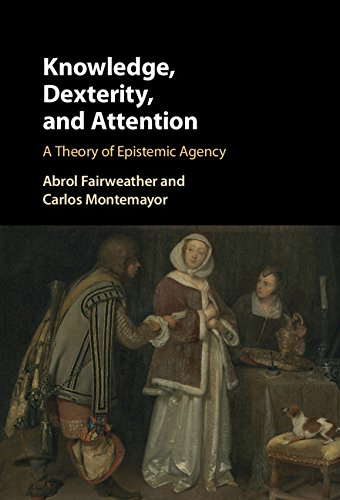
3:16: You’re working on the cutting edge of philosophy of mind, cognitive science, psychology, neuroscience and all things in that neck of the woods. One issue you’ve looked at is what are the fundamental units of analysis in epistemology. You propose what you call ‘an attentional turn’ in epistemology replacing accounts using propositional attitudes with attentional states and processes. So can you first say what this turn is about and does it make epistemology a psychological phenomenon rather than a logical one? Isn’t this approach a version of moral psychology or is it something else? And is epistemic agency continuous with fundamental forms of cognitive agency? Does knowledge require agency and which form of epistemic agency is necessary for knowledge? Is this where attention and world directedness come in?
CM: Yes, exactly. Motivation is key to fully appreciate why epistemic agency is continuous with cognitive agency and also why knowledge requires the world-directed and selective functions of attention. The prevalence of belief based-accounts of knowledge and propositional-attitude approaches has obscured the importance of reliable and virtuous motivation and skills in epistemology and philosophy more generally. Many treatments of epistemic value have focused almost exclusively on the contents of phenomenal consciousness, though externalist views of justification and knowledge are an obvious exception. According to orthodoxy, phenomenal consciousness is the basis of evidential support, inferential reasoning, and so on, because there is something it is like for us to have access to these contents. What else could provide a basis of justification other than your conscious awareness? But this way of approaching epistemic entitlements is hard to square with mental action, and there are actually plenty of options to ground epistemic entitlements that completely dispense with phenomenal consciousness, chief among them attention, which can be either unconscious or “access conscious.”
Inference, justification, knowledge, curiosity and presumably wisdom and understanding are all achievements that result from mental activity under the control of an epistemic agent—the agent gets credit for them and is responsible for them. This can certainly occur without any specific qualia, or what it is like to succeed at these epistemic tasks. It is typically assumed that phenomenal character alone can provide valuable evidence because it acquaints us with contents primitively and directly. But presumably, the value of this kind of connection with the world relies at least party on the fact that it informs us about the external world based on what we attend to. Isn’t our capacity to succeed at multiple tasks a kind of acquaintance with the world? If so, then attention can explain epistemic achievements, and it does so much better than phenomenal consciousness, because it is a selective kind of mental action. Thus, all of the essential epistemic roles can be executed by attention.
3:16: What’s a virtue reliabilist theory of knowledge and how does your approach help us understand it? Why think we have relevant motivational states at all for knowledge – after all, can’t we have unconscious systems of memory, accurate vision, inductive and deductive reasoning?
CM: Absolutely, motivations can be implicit as long as they are integrated with attention routines, which can be unconscious. Epistemic agents are motivated to satisfy representational and cognitive needs and for this, they have attentive skills.
Ernest Sosa deserves a lot of credit for articulating virtue reliabilism, and also for making virtue theories central to epistemology. The main idea is that virtue theories are based on performances that satisfy normative standards of excellence. If attention is the main target of evaluation, epistemic achievement can be understood in terms of the epistemic excellences of attention routines.
Virtue reliabilism provides a very balanced theory of knowledge. Externalism doesn’t rely on phenomenal consciousness or access, but it ignores agency. Internalism appeals directly to the conscious agent or to her mental states but it fails to explain how these states relate to success based on ability. Virtue reliabilism combines the advantages of externalism (process reliabilism) with the agential aspects of virtue theories.
3:16: Is all this what you call a Ramseyian account of agent based knowledge, and why is this a naturalistic account of epistemic virtue?
CM: Situationism is a challenge first discussed in moral theory against virtue ethics. The objection is that there is no empirical evidence for robust character traits, and on the contrary, plenty of evidence suggesting flaky, contingent, and situated cognition, which challenges the assumptions of virtue accounts and other moral theories. I am not entirely sure that this is exactly the case in ethics, but I am completely sure this is not the case in epistemology. My favorite example is knowledge of syntax. Virtue reliabilism says that perceptual and inferential capacities typically are very robust and have a high degree of success. One can hardly think of a more reliable skill than the inferential skills underlying syntax learning. Again, lots to say here, but I can’t think of cases where the situation parallels virtue ethics because the empirical evidence indicates that epistemic skills are quite robust and reliable across all sorts of variations and parameters. Moreover, moral theories seem to have a different normative structure, for instance utility maximization is future oriented in moral theory, while it is “record” or past oriented in epistemology, as Alvin Goldman has pointed out.
3:16: Consciousness has been dubbed the ‘hard problem’ although it seems everything about the mind seems pretty hard! So can you perhaps introduce us to the main areas of debate – things like access vs phenomenal consciousness; representation, content and qualia; the use of contrasts, the relationship vs consciousness and the self and so forth.
CM: The hard problem is supposed to be uniquely hard because it is unlike any other problem concerning complexity and information. For example, it is not captured by the P/NP-hard distinction for computable problems, which if you think about it is kind of weird given that introspective self-aware information is supposed to be simple, immediate, and primitive (as philosophers say, you just open your eyes and there you are, fully conscious and ready to go!). But more seriously, the explanatory gap is a really unique hurdle. Phenomenal consciousness, or what it is like for you to experience the painfulness of pain, or the bitterness of a pill, from your very unique first person perspective, is what creates the hard problem. No scientific theory, algorithm, complex function, or third person description can explain why you should grasp these very specific contents with their ultra-unique phenomenal character. Access consciousness, by contrast, is what is involved in skill, ability and reportability. It concerns information that is available for thought, action, memory, and decision-making. In my opinion, this distinction between phenomenal and access consciousness, which we owe to Ned Block, is fundamental to frame many other debates. For example, first order and higher order representationalist theories of consciousness affirm that phenomenal character supervenes on representational content. For the phenomenalist these views are about access consciousness rather than phenomenal consciousness, because for them, phenomenal character does not supervene on representational content alone. I talk a bit about phenomenal contrasts and self-consciousness below. The essential point is that a lot of the debate gets cleared up once clear distinctions are in place.

3:16: What progress has been made in our understanding of consciousness? Is it still as intractable as some have felt it to be, especially the metaphysical issues it raises?
CM: Most of the contemporary metaphysical difficulties depend on a priori scenarios that are introspectively evaluable, and to that extent we seem to have made little progress, particularly in the eyes of the scientific community, although of course many will disagree with this assessment. Neuroscientists working on consciousness have made great progress with respect to localization, cognitive function, and neural dynamics, but it is difficult to assess whether they are really investigating phenomenal consciousness, so there is a bit of a stalemate there as well.
The area where I think a lot of progress can be made in the near future is with respect to the value of consciousness. In the book on consciousness and attention I published with Haladjian in 2015, we argued that access consciousness and attention are epistemically valuable, and that phenomenal consciousness is important for morality and aesthetics, although phenomenal consciousness can and typically does play important epistemic roles. This allows for different approaches to canonical thought experiments. For example, Mary after revelation learns something non-physical only in the sense that it depends on her visceral and emotional reactions. Before revelation she was a perfectly trustworthy epistemic agent—actually, a world expert on the neuroscience of color perception. Her puzzling new knowledge concerns the empathic and emotional components of color—she can now get excited about going to museums, see Rothko paintings, and be moved by sunsets. Haladjian and I called this empathic normativity. Mary is now empathically competent at emotional and aesthetic judgments of color. Neuroscience has demonstrated that color perception is indeed part of an older emotional network, besides the more recent color recognition network. Ultimately neuroscience must be highly relevant to whatever consciousness is, so this distinction may play out in many debates. Again, our view is not at all universally accepted, but our normative distinction might help overcome some of the current stalemates and verbal disputes.
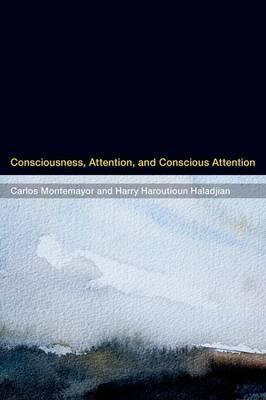
3:16: Let's talk more about attention and consciousness. Where do you stand on the relationship between attention and consciousness. There are some – maybe Jesse Prinz does - who argue that they are identical, others not quite saying that but saying attention and consciousness are closely related. What makes them say this and does the evolutionary argument throw doubt on this – and does language have a role here too, in particular for first-person point of view consciousness?
CM: The standard distinction between phenomenal and access consciousness entails dissociation, which is already a problem for anyone who identifies attention with phenomenal consciousness (access consciousness is basically cross-modal integrated attention). For Block, this distinction entails a double dissociation (more about this in the next question). A lot of experiments show that attention, even to abstract semantic contents, can and does occur unconsciously, and quite regularly. Indeed, Jesse Prinz identifies consciousness with a type of attention but he leaves room for interpretation. For instance, he permits unconscious cognition of an attentive kind. But, as you point out, I do think the most conclusive evidence against an identity view between phenomenal consciousness and attention comes from evolutionary considerations. Many types of spatial, feature, and object-based attention evolved right at the beginning of the Cambrian explosion. If one is willing to identify attention with phenomenal consciousness, any animal that navigates or predates is phenomenally conscious. It is reasonable to assume that many animals are phenomenally conscious, but to suggest that basic spatial attention automatically makes a creature phenomenally conscious seems problematic and highly speculative. In that case, most species are phenomenally conscious. It seems much better and a lot more empirically grounded to grant them all attentional capacities for spatial navigation, and these have been verified. I will address language and the first-person point of view in response to your next question. About my take on the relationship between consciousness and attention, I think access consciousness is a kind of integrated attention, and that attention might be necessary for phenomenal consciousness—although I am open to the possibility that there may be cases of phenomenal consciousness without attention.
3:16: You suggest a spectrum of dissociation between attention and consciousness could pan out don’t you. Can you sketch for us the options, why you think it a better way to approach consciousness and then say which you think is the best bet given the current state of play.
CM: As things stand now, most theories of consciousness and all of the empirical evidence demonstrate that there is some degree of dissociation between phenomenal consciousness and attention. If the distinction between access and phenomenal consciousness entails double dissociation, then the point on the spectrum is at one of the extremes (complete dissociation): phenomenal consciousness can take place without attention and of attention without phenomenal consciousness. It is difficult to think of consciousness without attention. But that does not mean that they are not completely dissociable.
Regarding possible intelligences (alien and artificial), it would be worthwhile asking what feature of human psychology integrates consciousness and attention, even if they are dissociable in human psychology? My take is that a purely attentive agent without phenomenal consciousness (a super-duper blindsighter or your philosophical zombie) might be epistemically trustworthy and responsible, but incapable of the kind of moral and aesthetic reasoning humans have (and vice versa).
Language is a thorny problem. Is it largely dependent on attention? There is a story to be told here, since joint attention seems so crucial to securing reference and grasping contents. But phenomenal consciousness also seems fundamental to grasp the contents of phenomenal concepts. More importantly, conscious attention, plays a fundamental role in acquaintance with referents. But are phenomenal concepts really necessary for linguistic capacities? I am not sure. Attention, by contrast, does seem fundamental to most linguistic capacities I can think of. How about intelligence? There is certainly intelligent behavior in animals, and one can imagine attentive creatures that lack anything like human language. Still, language remains a paradigm of intelligent thinking.
The relation between content and phenomenology is quite interesting, but attention skills are necessary here as well. Susanna Siegel introduced a method of phenomenal contrasts to argue that the contents of conscious perception are rich. One can see color and shape, but also happiness or sadness. The question is whether we could do this solely in terms of attention, rather than changes in phenomenology. Are these contrasts attention or phenomenology driven?
The self does seem to depend on the unity of consciousness, and the first-person point of view defines subjectivity in a way that attention has not yet been demonstrated capable of explaining. But one certainly can hold the view that the self is an attentive self, rather than a conscious self, as Carolyn Dicey Jennings has argued. If she is right, even the self is dissociated from consciousness.
3:16: What’s integrated information theory and why is context a problem for this theory of consciousness?
CM: Integrated information theory is supposed to provide a new theory of information, but it is very hard to actually justify it as a theory of information. Instead, the theory only makes sense if one accepts a set of axioms about phenomenal consciousness that are supposed to be self-evident, such as logical and mathematical axioms. This is a rather oblique way of structuring a theory of information, but IIT has several attractive features. For example, IIT offers predictions about the brain that few other theories make, and there is something very intriguing about how it links conceptual information with causal structure. Its most basic tenet is that phenomenal consciousness is highly integrative, as determined by a measure (Phi), which tracks how the informational decomposition of a system contributes to the entire information of the system. If the sum of decompositions into informational nodes amounts to the same amount of information in the system, then it has no positive Phi. Once the decompositional sums make a difference at the whole system level—which is not explainable by the information in each unit—then there is a positive amount of Phi. This is a very intuitive way to think about the unity of phenomenal consciousness and its rich, or maximally determined, contents.
Ultimately, I think IIT is too internalist, and this partly explains the contextuality problem. Since IIT is supposed to be a theory of phenomenal consciousness, this may not be an insurmountable problem—after all, phenomenal consciousness is what makes all the internal aspects of our conscious experiences unified. But consciousness is also contextual, spontaneous, and driven by external stimuli. In very simple terms, IIT has no flexibility, as it does not allow for order-effects and other deeply contextual forms of Gestalt-like phenomena. Nor, for this reason, can it be a complete theory of conscious information. From a formal perspective, it is uncertain whether IIT can be implemented with axioms that are compatible with informational processes that depend on variables that do not commute because of specific and externally determined circumstances—their values cannot be predicted by a snapshot of the internal metric at a point in time. IIT does not explicitly explain how some effects cannot be predicted based on previous information. Consciousness seems to be deeply contextual in this way, a particularly pressing problem for IIT. That said, IIT is a major theory of consciousness and may turn out to entail a new theory of information, which would be truly incredible if true.
3:16: In the debate between monistic view of memory and a transactional view you say the transactional one is superior. So what’s the difference and why do you choose the transactional?
CM: Nelson Goodman, I think, nailed a difference that really matters for memory. He argued that a report completely lacks the value of a narrative. By turning a narrative into a report, he said, one loses track of what is important or salient. What I call the monistic view of memory holds that memory, like perception, is guided epistemically by a truth norm—the purpose of the memory system is to provide justified beliefs and knowledge about our past. If you think that the sole purpose of memory is epistemic, you encounter a transactional difficulty: Our memories cannot be mere reports, but neither can they be nice confabulated stories. We need a balance to make memories sufficiently vivid and accurate. By the way, this has implications for the dissociation between consciousness and attention, because access conscious memories are epistemically valuable, while phenomenally salient memories are morally and aesthetically valuable. They are meaningful, rather than merely accurate. I favor a transactional account because a purely epistemic account cannot explain the moral and aesthetic value of memory.
3:16: Does the relationship between attention and consciousness have implications for having a subjective AI first person point of view? You’ve produced a roadmap for intelligence, knowledge and consciousness to help us understand the issues haven’t you – could you sketch it for us and say what implications we should draw from it, especially regarding the question as to whether AI could become conscious.
CM: Thank you for all these great questions! If there is a difference between epistemic and moral agency, where would AI fall? With regard to epistemic agency, the key distinction is between knowledge tools and knowledge producers. AI may get very complicated, but it will remain within the realm of tool AI as long as it lacks any kind of epistemic motivations and attention routines to guide epistemic queries. In principle, I admit it is at least possible that artificial general intelligence will become capable of genuine epistemic motivations and attention routines. Thus, it may in the future qualify as an epistemic agent. However, I am deeply skeptical that AIs will ever count as moral agents, though there might be possible to make a case for protecting AIs solely on the basis of their epistemic value.
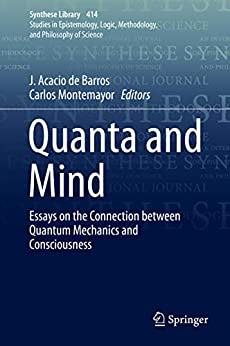
3:16: Do you think quantum mechanics has something deep to tell us about consciousness, or vice versa, will the presence of consciousness lead to a better understanding of our quantum world, or is it as Dave Chalmers has suggested that the phenomena of consciousness and quantum-state collapse have something to tell each other? (nice an easy one there!)
CM: Haha! Well, I have attended conferences where I heard quite a few times that the way to connect these themes is through a mystery-fallacy: consciousness is mysterious, quantum mechanics is spooky, therefore, they must be related. Some of the quantum conscious discussion relies on such reasoning, but I am skeptical that these themes are so related. Although all the interpretations are problematic, one key interpretation of quantum mechanics is especially cognitivist, and it explicitly and fundamentally appeals to the mind, namely the Copenhagen interpretation (incidentally, the fact that there are many interpretations of quantum mechanics is worrisome, but that is a different issue). The Copenhagen view has traditionally been interpreted as solving the measurement problem by explaining the collapse of the wave function through the observation of a conscious observer, as in phenomenally conscious perception. But given the hard problem, which states that phenomenal consciousness is not functional, structural or causal, this is odd. My contribution to this debate is, unsurprisingly, that attention and access consciousness provide a much better way of articulating the Copenhagen interpretation, one that was likely intended by its original proponents. Measurement and observation depend on attention, which offers a better account of the causal powers of the mind that can inform other interpretations as well, particularly for characterizations of observers and measurements.
3:16: Chomsky argues that Newton showed via the spookiness of gravity that conceivability is no longer a useful way of assessing how the world works. So are all these theories about consciousness and quantum mechanics and so on hampered by our cognitive limits – we might have good theories but they’ll always fall short of us knowing anything really about their targets?
CM: I agree with Chomsky that introspection can be counterproductive, an obstacle for many investigations worth pursuing. Philosophers think of the foundations of mathematics as our protective shelter, the one area where you cannot dispense with introspection and a priori reasoning. If only we could rebuild, construct, or articulate the world on the basis of these translucent and radiant thoughts, we might see the relevance of conscious introspection for science in general. All I can say is that it is not obvious that even mathematics provides any such shelter—even mathematicians continue to debate how to incorporate proofs arrived at through computer power and automation. So yes, we may be limiting our investigations by relying too much on what we can conceive of. But then again, what can we do about it? Replacing introspection with other methods also entails risks in areas such as ethics. All the same, the excessive use of introspection in philosophy is unfortunate. Notably, it has prevented philosophy from taking history, philosophical anthropology, and sociology more seriously, causing positive harm to the discipline, producing a general kind of epistemic injustice, and silencing ancient or alternative philosophical traditions that would enhance, rather than detract from, our understanding of age-old problems.
3:16: And for the readers here at 3:16, are there five books you can recommend that will take us further into your philosophical world?
CM:
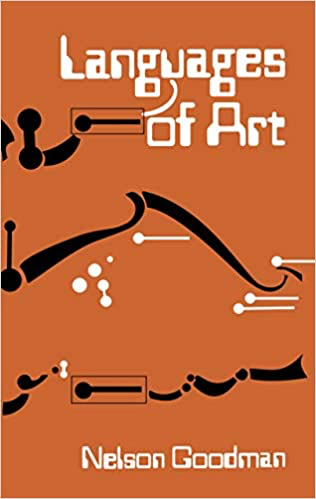
Nelson Goodman. (1976). Languages of Art: An Approach to a Theory of Symbols. Hackett Publishing Company.
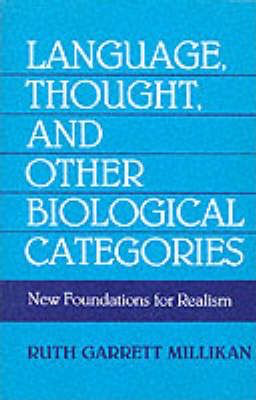
Ruth Millikan. (1984). Language, Thought, and Other Biological Categories. MIT Press.

Cheryl Misak. (2016). Cambridge Pragmatism: From Peirce and James to Ramsey and Wittgenstein. Oxford University Press.
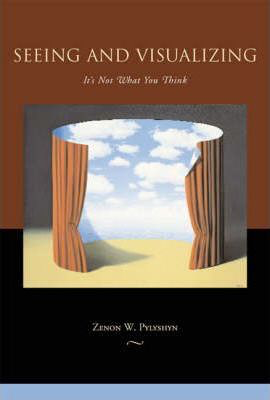
Zenon Pylyshyn. (2003). Seeing and Visualizing. MIT Press.

Ernest Sosa. Judgment & Agency. Oxford University Press.

ABOUT THE INTERVIEWER
Richard Marshall is biding his time.
Buy his second book here or his first book here to keep him biding!
End Times Series: the index of interviewees
End Time series: the themes
Huw Price's Flickering Shadows series.